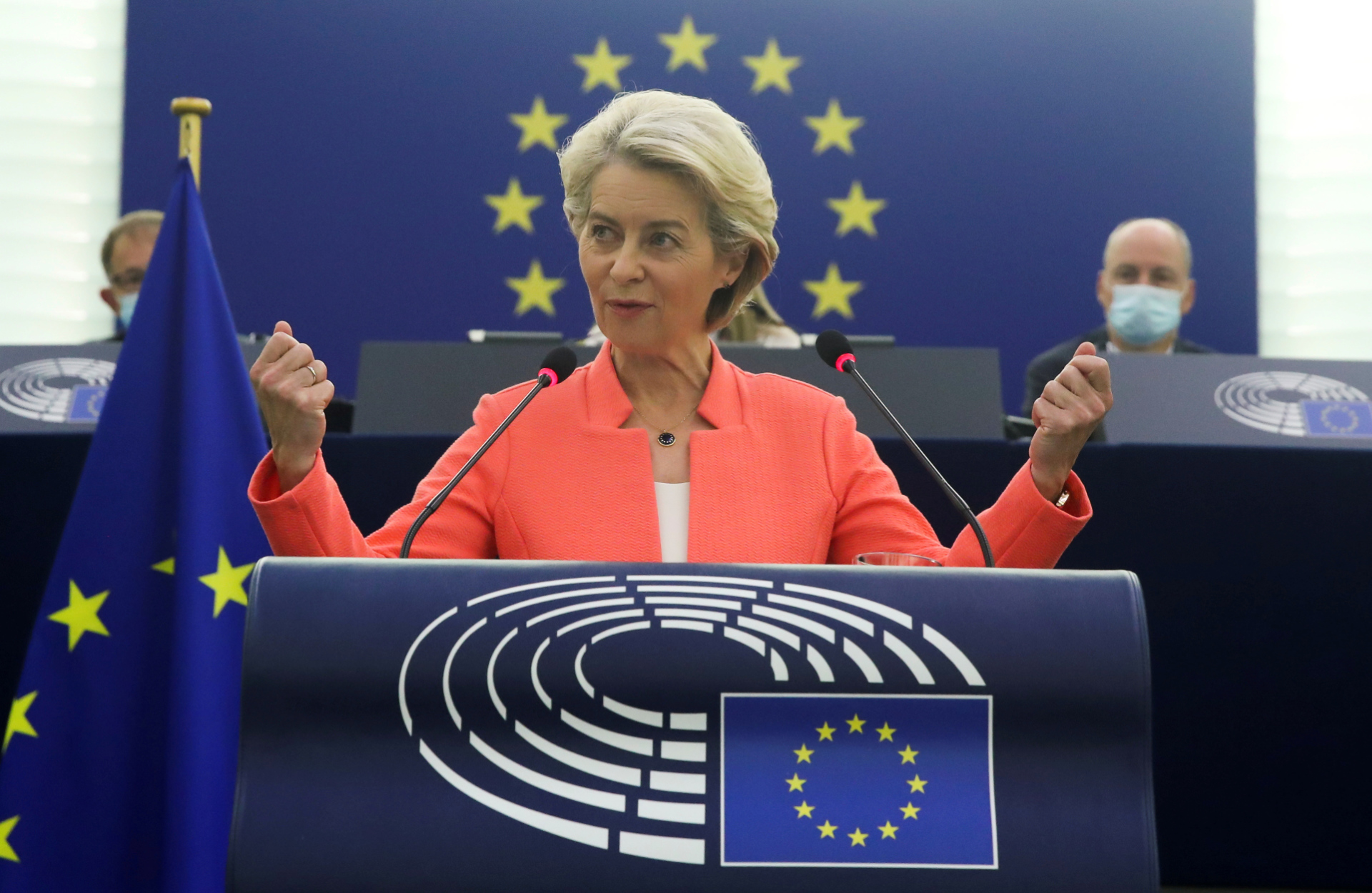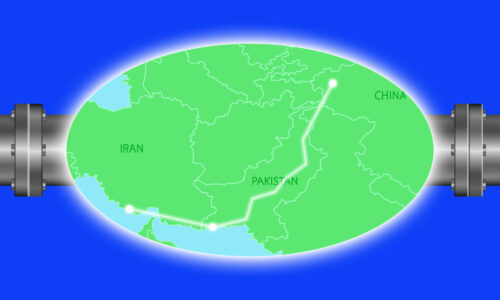EU challenges China’s Belt and Road Initiative with global infrastructure program
It sounds like the name of a frequent flyer program, but the new European initiative, “Global Gateway,” seeks to compete with the BRI by creating “links and not dependencies.” Can a Western “values-based” approach really hope to compete with the cold cash and hard infrastructure capacity from China?

European Commission President Ursula von der Leyen announced yesterday, in her annual State of the Union speech to the European Parliament, the launching of a new global infrastructure program known as “Global Gateway.”
In parallel with the EU’s bid for a more global role and an increased focus on the Indo-Pacific region, the strategy seeks to “deepen trade links, strengthen global supply chains and develop new investment projects on green and digital technologies.” Although Von der Leyen did not identify the Belt and Road Initiative (BRI) by name, there is no mistaking that Global Gateway is intended to counteract the influence Beijing has cultivated through the BRI.
EU will not fund “perfect roads” to link Chinese mines to Chinese ports
Recognizing China’s head start and the need for a distinct EU response, von der Leyen remarked, “We are good at financing roads. But it does not make sense for Europe to build a perfect road between a Chinese-owned copper mine and a Chinese-owned harbour.”
Instead, she says that the EU will seek to “take a values-based approach, offering transparency and good governance to our partners. We want to create links and not dependencies!”
It is a reference to the controversial status that the BRI has acquired in recent years. BRI-sponsored projects have been alleged to involve opaque tender processes and backroom dealings with local political elites, with reports documenting significant political and economic concessions being made in exchange for Chinese capital in places like Pakistan, and Serbia. BRI investment, usually abiding by less stringent regulation and oversight procedures compared to Western funding sources, has been accused of exacerbating local corruption and democratic backsliding. Moreover, some BRI projects have reportedly engaged in the use of forced labor and other forms of worker exploitation.
In light of this, Von der Leyen emphasized the importance of presenting Global Gateway as a “trusted brand around the world.” She took further aim at China, asserting that “doing business around the world, global trade — all that is good and necessary. But this can never be done at the expense of people’s dignity and freedom.” She concluded the segment by proposing an EU-wide ban on products made using forced labor, declaring that “Human rights are not for sale — at any price.”
China news, weekly.
Sign up for The China Project’s weekly newsletter, our free roundup of the most important China stories.
This move comes at a rocky time in EU-China relations, which has undergone significant shifts in recent years. In 2019, the European Commission summarized its China policy in the publication “EU-China Strategic Outlook,” in which it described China as simultaneously “a cooperation partner,” an “economic competitor,” and a “systemic rival promoting alternative models of governance.”
While many observers pointed to the label of “systemic rival” as evidence of a key change in EU attitudes, the strategic paper nevertheless largely exemplified the decades-long balancing act that the EU has tried to sustain of deepening economic integration with China while trying to reconcile the two sides’ fundamentally different approaches to human rights.
This tension in the EU’s China policy was further reflected in the signing of the EU-China Comprehensive Agreement on Investment (CAI) on December 30, 2020. Designed to improve mutual market access, the deal contained key Chinese concessions that would increase the competitiveness of EU firms in the Chinese market and protect European investments in China.
While EU leaders had reason to be pleased, the deal came under criticism from European Parliament members and civil society groups for its inadequate human rights provisions. CAI merely secured from China a “commitment to make continued and sustained efforts to pursue ratification of the ILO fundamental Conventions on forced labor,” a policy that few believed Beijing would actually implement.
EU-China relations reached a low point in March when the EU sanctioned four officials and one entity involved with the human rights abuses in Xinjiang, provoking Chinese counter-sanctions on ten European individuals. In response, the European Parliament voted overwhelmingly to freeze the already-embattled CAI.
Taken in context, the announcement of Global Gateway demonstrates an increased proactiveness in the EU’s China policy, continuing the tone set in March by the first sanctions it imposed on China since the arms embargo in the aftermath of Tiananmen in 1989. Beijing will be watching closely on how the EU decides to roll out Global Gateway, particularly in the context of the EU-Africa Summit next February.
With this latest move, the EU sought to characterize the BRI as unprincipled and predatory, paving the way for the introduction of its own global infrastructure program as a more democratic alternative. It is a direct challenge issued towards China and the BRI, the centrepiece of Xi Jinping’s foreign policy.
China news, weekly.
Sign up for The China Project’s weekly newsletter, our free roundup of the most important China stories.





